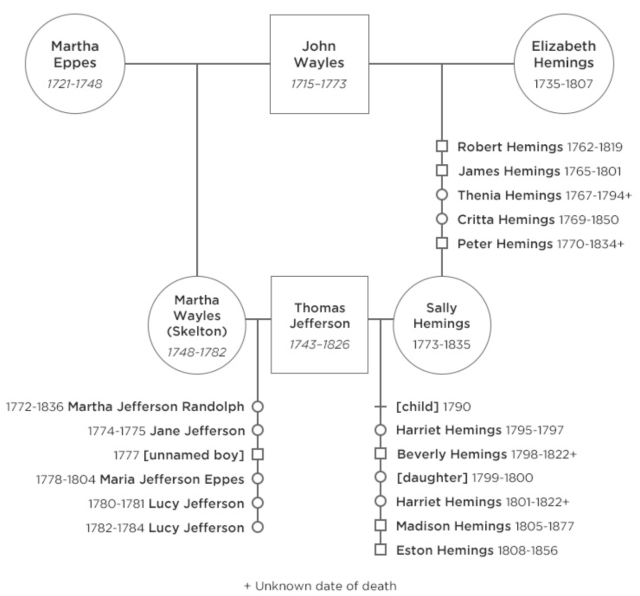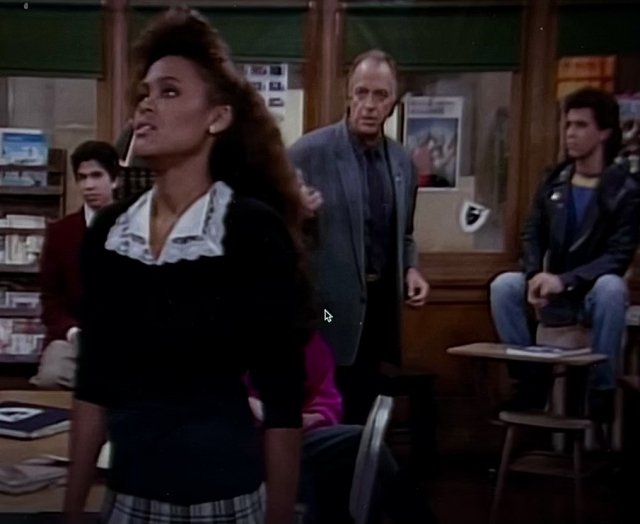
Views from the Commons
Posts Filtered by Type - Education |
Show Recent Posts
September 21, 2024
The Gender Gap Should Worry Democrats
The Gender Gap Should Worry Democrats
Democrats are losing support from young men. Here's why, and what to do about it.

A screenshot illustrating the gender gap in support for Kamala Harris from the NY Times website.
As outlined by the New York Times, the drop in support for Democrats by young men is all too real, and the gap has only widened since Kamala Harris replaced Joe Biden on the top of the ticket. With Biden, Gen Z men favored Trump by 11 points; the number has increased modestly, to 13 points, under Harris. Meantime, young women's support for the Democratic ticket surged. They favored Biden by 28 points, and now favor Harris by 38 points. If polls were predicting a solid Democratic victory, the Dems' number gurus would say strong support from young women eclipses loss of support from young men and leave things there. But margins in this race are razor-thin. Any loss of support in key demographic groups represents a problem. (And, of course, an opportunity.) So it's worth asking why so many young men are turned off by the Democratic message.
For me, a Democrat who has spent a lifetime consuming political messages and who until recently taught high school, the reasons are obvious. For many young men, our educational systems, mental health support systems, even our economy, are not working particularly well.
- Girls graduate high school at a higher rate than boys, about 88% to 82%.
- Women with a high school diploma outnumber men in college attendance, 65.3% to 57.6%, and they graduate at a higher rate, 67.9% to 61.3%.
- Although women attempt suicide at higher rates than men, men are much more likely to die by suicide, and the rate is rising the fastest among young men.
- Women are more likely than men to experiment with and to escalate their use of fentanyl. Nonetheless, men in the US die of drug overdose at rates 2-3 times that of women.
- Except in progressive bubbles, the cultural expectation that men will support women and families has not gone away. While the pay gap between men and women has not disappeared overall—and that's a big deal indeed—the present-day economy offers few jobs young men can fill which pay enough to support a relationship or a family. In some markets and regions, women are now out-earning men.
As Republican overtures to young men focus on re-establishing male dominance of an objectively toxic nature, Democrats rarely mention men in any context other than to highlight their toxicity. Young men can be excused for thinking Democrats struggle to differentiate toxic masculinity from masculinity in general, and that the flawed attention paid to them by Republicans is better than no attention at all.
Young female candidates tend to focus on abortion rights and other female issues, while making no appeal to young men. These candidates are beyond brave for taking a stand and running into a gale of Republican sexist degradation. That being said, they are politicians, and winning politicians run on more than personal passion and bravery. They make a compelling case to all persuadable voters that their choices will help those voters.
(Even in my boomer demographic, the Democratic rhetoric grows tiresome. There is a constant drumbeat that men continue to enjoy privilege at levels women were fighting against in the 1970s. As we have seen, the numbers don't support that premise.)
Left-leaning press outlets have used the right's reactionary, misogynistic, and frankly dumb appeals to men in crisis to make the equally dumb case that there is no crisis.
The New York Times makes clear that the many young men who support Trump do not fit the MAGA profile.
In interviews with young men planning to vote for Mr. Trump, they described feeling unvalued. They said it had become harder to be a man. They valued strength in a president. Yet they didn’t express bitter misogyny or praise the exaggerated displays of brawn embraced by the Trump campaign. Their concerns were mostly economic, like whether they could fulfill the traditionally masculine role of supporting a family.
Given that young men's political leanings are more practical than ideological, Democrats have a chance to bring them back into the fold. Writing on the progressive website The American Prospect, Paul Starr provides detail on Republicans' appeal to young men and possible Democratic approaches to stop the bleeding. Perhaps sensing an opportunity, the Harris presidential campaign has emphasized economic prosperity in its advertising, at least indirectly addressing the concerns of young men. And Harris picked Tim Walz as her VP candidate. Says Starr: "As a football coach, teacher, and officer in the National Guard, [Walz] has had long experience in working with young men. He could take up the challenge of engaging Republicans directly on what a worthy life is for men today."
Walz could pitch Democratic solutions to young men without costing Democrats a single young woman's vote. Since the DNC, Walz has not been front-and-center in the Harris campaign nearly enough. Nor, more generally, has the Democratic party spoken directly enough and often enough to young men. It's a shame, because young men stand to gain from Democrats' emphasis on union labor, education, mental and physical health, and lower taxes on the middle class. It's not too late, but time is running out.

March 12, 2022
FAIRstory 4: Standing Idly on the Road to a Better America
FAIRstory 4: Standing Idly on the Road to a Better America
Can the United States survive a multicultural future, where diverse groups publicly express and celebrate their identities? In other words, can the United States live up to its ideals and embody a future where all of us are free? The authors of FAIRstory don't seem to think so.

A still from FAIRstory Video #8 depicting Jefferson signing into law the banning of the trans-Atlantic slave trade
In its Video #5, The Road to a Better America, FAIRstory profiles civil rights leaders such as Susan B. Anthony, Chief Standing Bear, and Martin Luther King. Later, FAIRstory explores the abolitionist movement among White Americans in some detail, profiling William Lloyd Garrison and others.
FAIRstory’s treatment suggests that change occurs when articulate, relentless members of oppressed groups and their allies gain the ear of … it’s never made clear who, but someone sees the light and change happens. Of course, it hasn't quite worked that way. Our history is one of oppressors using raw political power and extra-legal violence to deny all but a select group of us fundamental human rights, activists be damned. Rarely has the arc of United States history bent toward justice without bloodshed. Before activist rhetoric has changed us for the better, it has driven us to the point of the sword.
People who cannot express and celebrate their identities are not free. FAIRstory sidesteps this simple truth in the interest of mollifying those on the right who are more interested in assimilation than in free expression. FAIRstory cherry-picks quotes from Martin Luther King and others in support of the fiction that civil rights leaders wanted a colorblind society, and wanted it right away. The FAIRstory curriculum explicitly states that legal discrimination ended in the 60s as a result of the efforts of King and with Johnson’s signing of the Civil Rights Act. It’s over, nothing to see here.
On the matter of antisemitism, a quote attributed to Sigmund Livingston is particularly egregious: “Jews must work to dissipate the notion that the Jew differs from the general public in any manner except in his religious faith.” Of course, members of the Jewish community are the general public, can defy normative expectations at will, and have no obligation to explain themselves to anyone. Subtle notes are everywhere in FAIRstory to reinforce the notion that some collectives stand outside the mainstream of American culture and need to assimilate for their own good.
Should members of the LGBTQ community be included in stories about the expansion of civil rights in the United States? FAIRStory doesn’t seem to think so. Google cannot find evidence that they exist on FAIRstory’s website.
FAIRstory’s videos omit the pernicious use by Christians of Bible passages to justify slavery, a tactic prevalent in the run-up to the Civil War. Was FAIRstory mindful that doing so might excite comparisons to evangelists’ political maneuvers in the present and rile right-wing Christians?
A curriculum which charts the midpoint between the harsh realities of our history and the feel-good expectations of triggered White, straight Christians is no curriculum at all.

January 11, 2022
Jefferson and Hemings and Network TV
by Hal Wright
Jefferson and Hemings and Network TV
by Hal Wright
To take the next steps toward equality for all, our country must reckon with the full historical record of its most hypocritical Founder. I started a personal reckoning in the 1980's, and it's not finished.
I first became aware of the existence of Sally Hemings when I watched an episode of Head of the Class in the 1980's. In the episode, called "The Way We Weren't," Darlene, a brilliant Black high school student (played by Robin Givens, in her breakthrough role) wrestles with the knowledge that she is a descendant of Sally Hemings and Thomas Jefferson.
It's not that I had never heard of or read about Hemings before that. It's that I had never felt any part of the weight of the story until I saw a young Black woman tell it.
Yesterday, I bought and rewatched the episode. It wasn't as groundbreaking as I thought at the time. And the script was... awful. Darlene's White history teacher, played by series star Howard Hesseman, tells Darlene exactly what she should think about her fifth great grandparents. He says historians think Jefferson and Hemings were in love and that the times demanded he keep her enslaved, as this was the only way they could be together. The teacher cites writings by Hemings' son Madison as proof of the loving nature of the Hemings-Jefferson relationship, claims that Jefferson's having brought Hemings to Paris is proof of his affection for her, and states that Jefferson granted Hemings her freedom upon his death. Darlene's anguish soon evaporates.
The trouble with this explanation is that it stinks like the manure on Jefferson's fields.
We will never know exactly what Hemings and Jefferson held in their hearts. But we can learn a great deal more about the circumstance of their connection than what this television show and most popular sources reveal.
Hemings was a child of 13 or 14 when she accompanied Jefferson's daughter Maria to Paris as her maid-servant. According to Madison Hemings, at age 16 Hemings agreed to leave France, where she could have remained as a free woman, and return to Monticello with Jefferson so long as he agreed to free all of her unborn children by age 21. That Hemings was worried about unborn children in Paris, and that she gave birth to Jefferson's child shortly after her return to Monticello, provides important context.
More context comes with the knowledge that Sally Hemings was Jefferson's deceased wife's sister, his sister-in-law. Martha Jefferson's father John Wayles enslaved and raped Hemings' mother Elizabeth. Sally Hemings and her family came to Monticello when Martha inherited her father's wealth, including the people he had enslaved.

The Hemings family tree as it appears on Monticello.org
Sally Hemings likely bore seven children by Thomas Jefferson, four of whom lived to adulthood. All remained enslaved until the age of 21. Sally Hemings was never formally released from bondage, though after Jefferson's death in 1826 his daughter Martha allowed her to leave Monticello and to live as a free woman in Charlottesville with her son Madison.
Jefferson enslaved Black Americans for the entirety of his adult life, over 600 in all, and granted freedom to only a few of them.
Returning to Head of the Class, Darlene's classmate and rival Allen expresses envy that Darlene is related to a founding father. Darlene says, "I win the snob contest because Thomas Jefferson slept with a distant relative of mine? He owned her Allen. He could have set her free but he didn't until after his death. A little late. Am I supposed to be proud of that?"
The teacher then presses the false narrative that Jefferson brought Hemings to Paris as the "woman of the house."
Darlene says, "A happy slave story? No thank you." No thank you indeed. Undeterred, Darlene's teacher doubles down.

A still frame from "The Way We Weren't" with Darlene reacting to an explanation from her teacher.
I will share more about Jefferson and Hemings on a different day. For now, I will do what Darlene's history teacher should have done, what all history teachers should do: leave you to process your own thoughts and feelings, if you wish.

December 22, 2021
George Will Doesn't Like the 1619 Project
by Hal Wright
George Will Doesn't Like the 1619 Project
by Hal Wright
Right-wing panic around the ground-breaking project from the New York Times is peaking throughout the country. George Will just poured his ration of gasoline on the fire.
In a tantrum spanning the first two-thirds of his op-ed, Will excoriates the 1619 Project host Nikole Hannah-Jones for her statement that the Revolutionary War was fought in large part to preserve slavery in North America. On the basis of this mildly hyperbolic statement, which Hannah-Jones has since walked back, Will brands the entirety of the 1619 Project as "historically illiterate."
It would not be productive to parse Will's words here. If Will knows much about the 1619 Project beyond what historian Gordon Wood has written about it, he provides no evidence to that effect in his op-ed. Nor is there evidence that Will read the article cited in his op-ed which takes Wood to task for ignoring Black Americans and American slavery almost entirely.
Instead, let's consider what makes the 1619 Project so inflammatory to right-wing pundits and politicians. The 1619 Project chronicles in gruesome detail how enslaved Americans and their progeny have experienced the country in which they live. It celebrates the patriotism of Black Americans who, in fighting for their own liberty, have expanded liberty for all of us. It posits persuasively that Black art and music are the engine of American culture. In pointing fingers, and it does point fingers, the 1619 Project presents actual atrocities as evidence of broad-based intent to harm.
Now let's look at facts which no honest observer would dispute. For 240 years, enslavers crafted chattel slavery into an ever more efficient system of degradation and torture for their own gain. In the 100 years after the Civil War, every attempt by Black Americans to engage in citizenship from a position of equality was met with violent, deadly resistance. The years since the civil rights legislation of the 1960's have been better but far from ideal. And vestiges of the bad old days are embedded in our public policy, in our institutions, and in our economy.
Right-wing Americans have pushed back against every freedom movement in our history, sowing fear and resentment with the same reactionary tropes around hidden political agendas and communism. It's predictable that George Will would join the chorus. His breathless appeals to somewhere south of the cerebral cortex notwithstanding, Will is wrong when he says the transformation Hannah-Jones seeks would destroy us. Like similar transformations of the past, purging systemic racism would improve our country, bringing us closer to the aspirations laid out in our founding documents.
All good history lessons have flaws. The 1619 Project was written by smart, conscientious, imperfect humans. It tells the truth the great majority of the time, and at its best it hits like a punch to the gut. We cannot blame a descendant of enslaved Black Americans when she centers in her work the systemic brutality people who look like her have endured, and names the evil actors. We can admire the persistence of abolitionists and quibble about details of fact while remaining grateful for the opportunity to learn Hannah-Jones's perspective provides.
This article has been edited for clarity.

December 15, 2021
DEI Programs: Necessary Intervention, Not Indoctrination
By Hal Wright
DEI Programs: Necessary Intervention, Not Indoctrination
By Hal Wright
Bucks NAACP President Karen Downer hopes diversity, equity, and inclusion (DEI) programs will make a comeback in 2022. I hope so too.
In her pitch-perfect opinion piece, Downer highlights the need for DEI programs by listing just some of the indignities happening right now in Bucks County schools:
- Asian American Pacific Islander students being blamed for COVID-19
- Rampant use of racial slurs against Black people, including against an elementary school student who was called "slave" and "gang member"
- Latino/a students being told to “go back to their country”
- Muslim students being called terrorists
- White students making racial and ethnic slurs on social media
- Harassment of LGBTQ students both in school and on social media
Students who feel unsafe in school have difficulty learning and experience mental health issues at higher rates. A well-crafted DEI program isn't an ideological indoctrination. It's a direct and practical effort to help all students feel comfortable and welcomed in schools they are required by law to attend.

POSTS BY TYPE
POSTS BY TAG
POSTS BY MONTH